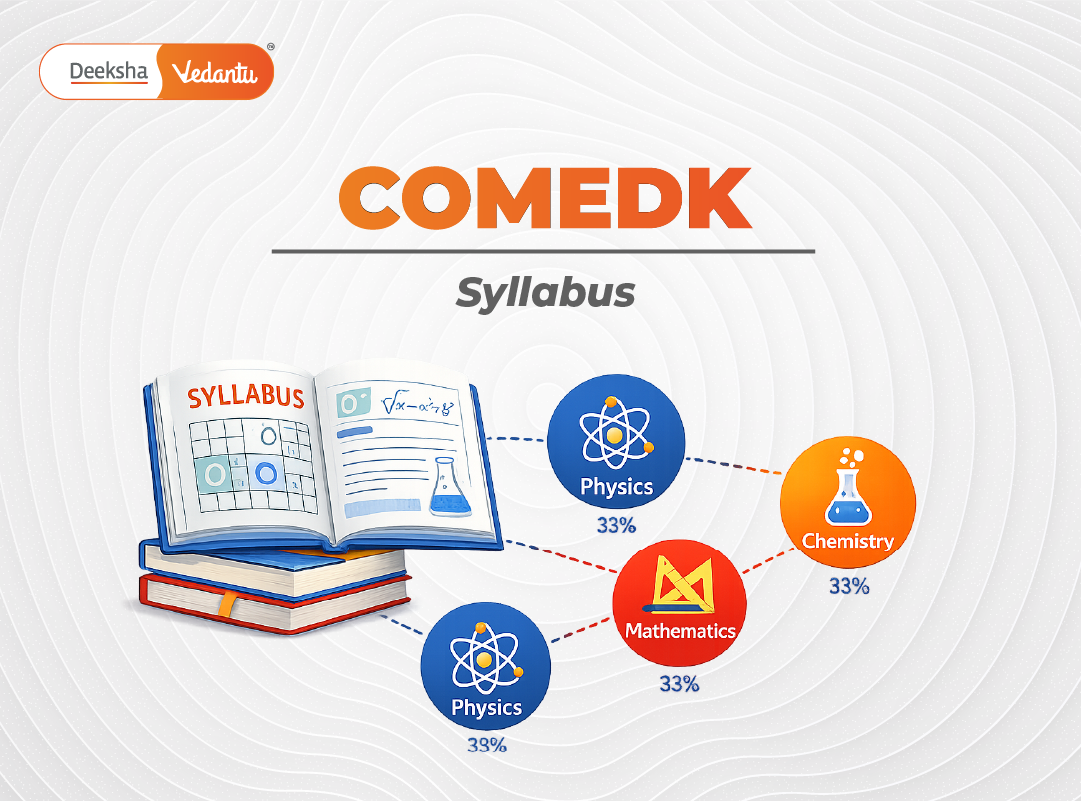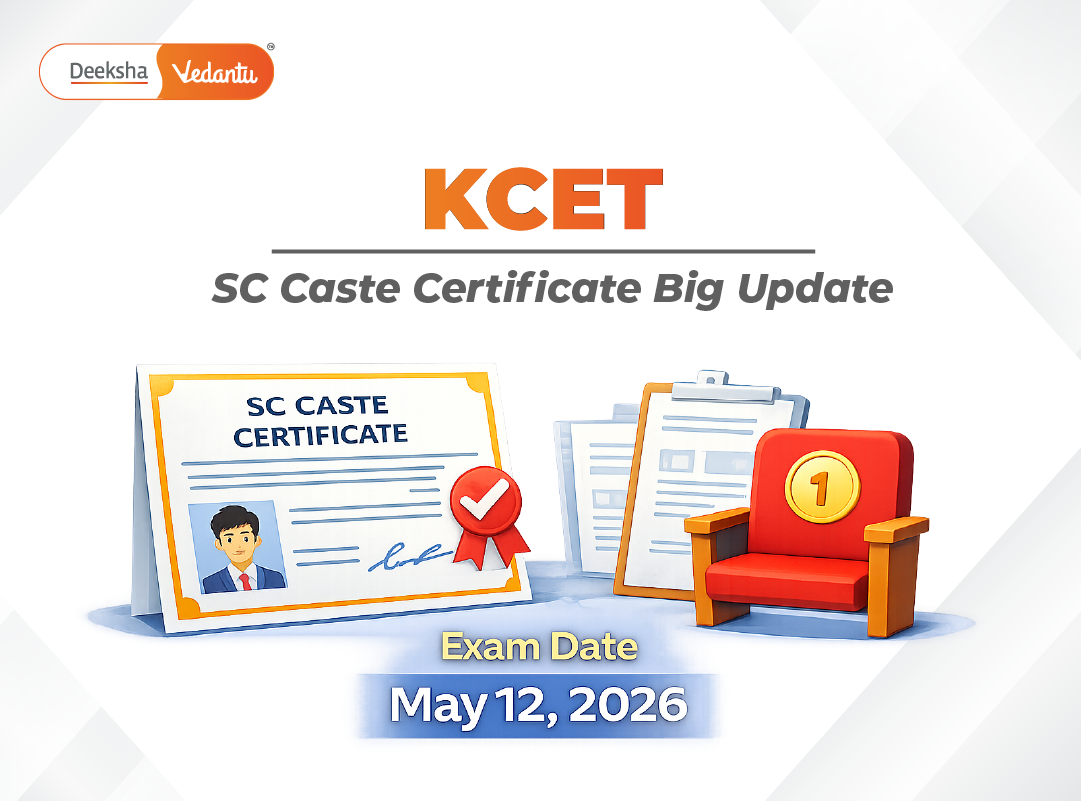Students studying for the CBSE Class 10 examinations must carefully approach the science exam. Board examinations for Class 10 are a crucial time for students, and it is at this point they determine the path of their future careers and the stream they will be placed in for their Class 12 board examinations. Since the results of the Class 10 board exams determine whether students will enrol in the Science, Commerce, or Arts stream for the Class 12 board exams, students should study for the examinations. Read the article to learn about the CBSE Class 10 Science exam preparation advice that can help students do well on exam day.
The CBSE 10th Science exam takes more preparation and effort to pass with excellent marks compared to other subjects. In light of this, we have highlighted a few simple CBSE class 10 science study tips that will help students obtain high scores. These great tips will help you create a study schedule for clearing the CBSE board examinations. Most of you are looking for effective study strategies to enable you to succeed on the Science exam even with last-minute preparations. Discussed below are some of the tremendous last-minute tips for preparations.
Last-Minute Tips for the Class 10 Science Revision
Students must have finished their science curriculum; now is the perfect time for a fast revision.
Therefore, to help learners in a better way for the exam, the top study tips for the class 10 science board exam in 2023 are provided here.
- Go over the updated science syllabus.
- To thoroughly grasp the questions that will be asked on the exam, practice as many as you can.
- Solve the previous year’s papers while understanding every question.
- Update the syllabus per the CBSE’s new chapter weightage.
- Practice and focus more on application-based questions to improve conceptual clarity.
- Use NCERT books to understand concepts fundamentally.
- To help you remember important concepts, use flowcharts, notes, diagrams, mnemonics, or additional study tools.
- Solve the CBSE Class 10 Science Sample Question Paper to get high marks.
- Thoroughly review the formulae from physics, the chemical reactions from chemistry, and the biological diagrams and terminology.
- Make short notes and revise them regularly to help you remember.
Essential Topics to Revise at the Last Minute for the Class 10 Science Exam
Each Science subject has a different degree of difficulty based on calculations and theoretical concepts. Students must fully comprehend the principles of this subject. If you want a high score in science, you must first recall and understand the principles.
1. Expected Questions from Physics
Below are some expected Physics chapter-by-chapter essential questions:
- Verify the Applicability of Ohm’s Law.
- Working on Applications for Ac And Dc Generators
- Dispersion of Light by a Prism
- Felming’s Left-Hand Rule
- Fleming’s Right-Hand Rule
- Magnetic Field Lines
- Concave Mirror Image Formation
- Convex Mirror Image Formation
- Effects of Atmospheric Refraction
- Images Formed by the Lens and Mirrors
- Defects of Vision and Their Correction
- Refraction of Light Through a Glass Prism
- Electricity
- White Light Spectrum
2. Expected Questions from Chemistry
Below are some expected Chemistry chapter-by-chapter essential questions:
- Mendeleev Periodic Table
- Dobereineer’s Triads
- the Newland’s Law of Octaves
- Cleansing Actions of Soaps
- Saponification
- Carbon and Its Compounds
- Isomers and isomerisation
- Characteristics of Elements
- Periodic table
- Identification of Components or Compound Formulae
- Neutralisation reactions
- Bleaching powder preparation and applications
- Dilution of acids and practical application of pH.
3. Expected Questions from Biology
Below are some expected Biology chapter-by-chapter essential questions:
- Heart and stroma structure
- Sexual and asexual reproduction and their respective roles
- The Function of the Placenta in the Female Reproductive System
- Contraceptives
- STDs: Sexually Transmitted Diseases
- Supply Chain
- Ten Percent Law
- Mendel’s Laws of Inheritance
- Homologous and Analogous organs
- Fossils as Proof of Evolution
- Reproductive System and organ diagrams.
- Sustainable Development and the 3Rs
- Hormone Imbalance
- Conduction of Nerve Impulse
Some Section-wise Tips to Prepare Science for the Class 10 Exam
Tips and Tricks for Physics Preparations
The following tips will help you ace your Physics preparations:
- Practice as many formulae, equations, and numerical problems as you can.
- Review your notes regularly.
- In your notes journal, jot down all theorems and equations. Then, practice problems based on them.
- Solving samples of previous year’s papers can help you become more familiar with the questions.
- Review all NCERT book examples, practice questions, diagrams, tables, and graphs.
- Work on clarifying Physics concepts to solve conceptual and theoretical problems.
- Practice diagrams for chapters like Electricity and Magnetism.
Tips and Tricks for Chemistry Preparations
The following tips will help you ace your Chemistry section preparations:
- Make quick notes or reminders of the formulae and compound names that need revision.
- Practice numericals and reactions to solve them correctly.
- Extensive practice with sample papers and thorough topic preparation helps to improve speed and accuracy.
- Recognise the elements in the contemporary periodic table with electronic configuration.
- A high-scoring section that takes less time to prepare is chemistry. Learn tricks for balancing chemical equations.
- Review each of the NCERT Science book’s concepts. Never skip a single exercise given in the NCERT texts.
- You must be familiar with the uses of numerous chemical substances and compounds.
Tips and Tricks for Biology Preparations
The following tips will help you ace your Biology section preparations:
- Biology is the theory part of the science exam, with many terms to learn.
- The life process and its related chapters require special attention.
- Note terminology and its functions so you can study and revise them, especially on the last day of the exam.
- Biology includes many complicated diagrams. Thus students should develop the habit of drawing a clear diagram with labelling while writing the answers. This will help them in obtaining more marks.
- It is usually a good idea to write down and comprehend these difficult concepts to become familiar with them.
- Before going on to supplemental books, ensure you have read through all the topics in the NCERT Science books.
- Try memorising the scientific names of different creatures, plants, and processes.
Some Preparation Tips for the Class 10 Science Exam
1. Understand the syllabus
The first step in preparing for any topic is familiarity with the syllabus. The science curriculum for the CBSE Class 10 Boards is extensive; therefore, you should be familiar with and grasp it well. It is also crucial to analyse the previous year’s papers to identify the crucial exam topics.
2. Practice Sample Papers
Practising model papers to examine your readiness after going through the entire curriculum is crucial. As you study for the tests, keep solving practice papers and questions to assess your progress. Students must solve the CBSE Class 10 Science sample paper and check its answers to use it as a reference while preparing for the examination.
3. Read the Updated Science Syllabus
Along with the classroom sessions, the students must finish the course material. But they must go through it again on their own. They will be doing a form of self-revision through this and will learn which subjects require more work.
4. Plan Your Study Time
Making a study plan for yourself and being clear about your strategy for the whole preparation process is crucial for students. They should create a schedule and strive to devote enough time to each subject. Determine your understanding of weak, moderate, and strong concepts, and provide time to each in accordance.
5. Practice the NCERT Textbook Exercise Questions
Practice questions are given at the end of each NCERT textbook. They improve your understanding of the chapter’s ideas and aid you in exams because many of the questions on the CBSE Class 10 Science board exam are either taken straight from this chapter or are marginally modified.
6. Practice the Previous Year’s Question Paper
Students must study previous years’ CBSE Class 10 Science question papers to ace the examination and obtain good marks. Students will observe that there are particular types of questions from specific topics that are asked each year. Additionally, there are some repeated questions asked frequently in the exams. Practising such questions is crucial and will help you in getting excellent grades.
7. Set Some Time for Revision
Students frequently wonder why they can’t remember something they have already studied several times. This is because, despite the repeated study of a subject, we never return to it for another quick glance. If students concentrate on routine revision, there will be no problems with remembering the material before and during the exams.
8. Make Notes
Making brief notes makes it easier to understand complicated concepts. The ideal method is to revise and remember them. Students can highlight the crucial formulae and concepts in the textbook. These notes will enable you to quickly review the curriculum in the last days before the exam.
9. Review the Expected Important Questions and Answers
These questions and answers have been chosen by subject experts based on the most recent CBSE curriculum update, prior year test questions, and sample test questions for Class 10 Science. By solving these questions, you may review your concepts, determine which subjects require further study, and increase your chances of succeeding in the CBSE Class 10 Science Board test in 2023.
10. Maintain Your Health and Avoid Social Media
Students should refrain from using social media extensively, which leads to concentration issues. Frequent use of social networking sites like Facebook or Twitter can waste time. Limit your usage of social media and prepare well with 100% concentration. Additionally, be sure you eat well and get enough sleep.














Get Social